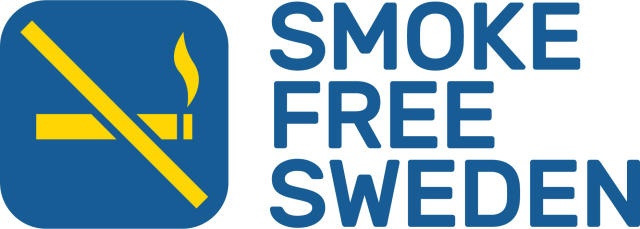• A biomedical specialist: “Adopting the Swedish model is essential to reducing the harm of smoking in Nigeria”
Sweden continues to inspire the medical and scientific communities through its pioneering experience in achieving a smoke-free future. By focusing on eliminating traditional tobacco and adopting the use of less harmful nicotine alternatives, this strategy, implemented over many years, has yielded significant positive results in public health. Tobacco smoking rates have decreased by 55% in the past decade, leading to significant reductions in smoking-related health risks. For instance, Sweden has witnessed a 41% decline in cancer cases and a 38% decrease in cancer-related deaths compared to other European countries. According to Charlie Weimers, a Swedish member of the European Parliament, the World Health Organization is poised to classify Sweden as the first smoke-free country in Europe, raising the question: Why haven’t other countries adopted this effective model?
In an article by Dr. ” Gabriel Oke,” a Nigerian specialized biomedical doctor, he highlighted the necessity of Nigeria adopting effective models to reduce traditional tobacco smoking. Nigeria faces severe health consequences due to traditional tobacco smoking, with approximately 30,000 individuals losing their lives in 2022 alone. According to the “Global Tobacco Control Report,” an estimated 4.5 million Nigerians, or 4.1% of adults, are current smokers.
Dr. “Oke” emphasized that implementing the Swedish model for tobacco harm reduction is not merely an option but a pressing necessity. This strategy has the potential to save numerous lives and pave the way for a smoke-free future, as the availability of less harmful nicotine alternatives is associated with lower rates of cancer and mortality. Dr. “Oke” believes that Sweden is adopting a progressive approach by using smokeless oral tobacco products and promoting diverse alternatives to traditional cigarettes. Notably, Sweden is the only European country where smokeless oral tobacco is legally permitted, with 18% of the Swedish population consuming it.
Dr. ” Gabriel Oke ” also highlighted the pivotal role of awareness campaigns and educational initiatives in transforming prevailing perceptions and reducing the stigma associated with harm-reduction products. This requires training healthcare professionals to recognize these alternatives and recommend them as effective tools for quitting smoking. Therefore, Nigeria should emulate this approach by launching awareness campaigns, educational initiatives, and targeted messages aimed at eliminating the stigma surrounding less harmful alternatives. Through these efforts, Nigeria can improve public health outcomes and progress towards a future free from traditional tobacco-related diseases.
Dr. “Oke” further pointed out the importance of pricing nicotine alternatives in a manner that reflects their associated risk levels, with safer alternatives being more affordable than traditional cigarettes. High taxes on less harmful products may discourage smokers from transitioning to options like e-cigarettes, keeping the status of high traditional smoking rates and associated health risks as is. Therefore, pricing policies should be carefully designed to incentivize smokers to choose less harmful alternatives, contributing to improved public health.
Recent research demonstrates the effectiveness of alternative tobacco products, with 60% of participants perceiving nicotine replacement therapy as the most effective, while 26.7% believe e-cigarettes are the best option. Additionally, 73.3% of participants believe nicotine alternatives are safer than traditional tobacco, and 48.3% hold the same view for e-cigarettes. Furthermore, 70.8% agree that these alternatives aid in quitting smoking. However, there remains a lack of awareness regarding the addictive nature of these alternatives and their effectiveness in achieving complete cessation.
In this context, studies suggest that using alternative products like e-cigarettes, heated tobacco, nicotine pouches, and others may contribute to complete smoking cessation. While these products are less harmful, they are not entirely risk-free. Experts agree that nicotine itself is not the primary cause of smoking-related diseases, but rather the exposure to toxic substances produced by burning tobacco. Therefore, the best option remains completely quitting smoking and nicotine altogether.




